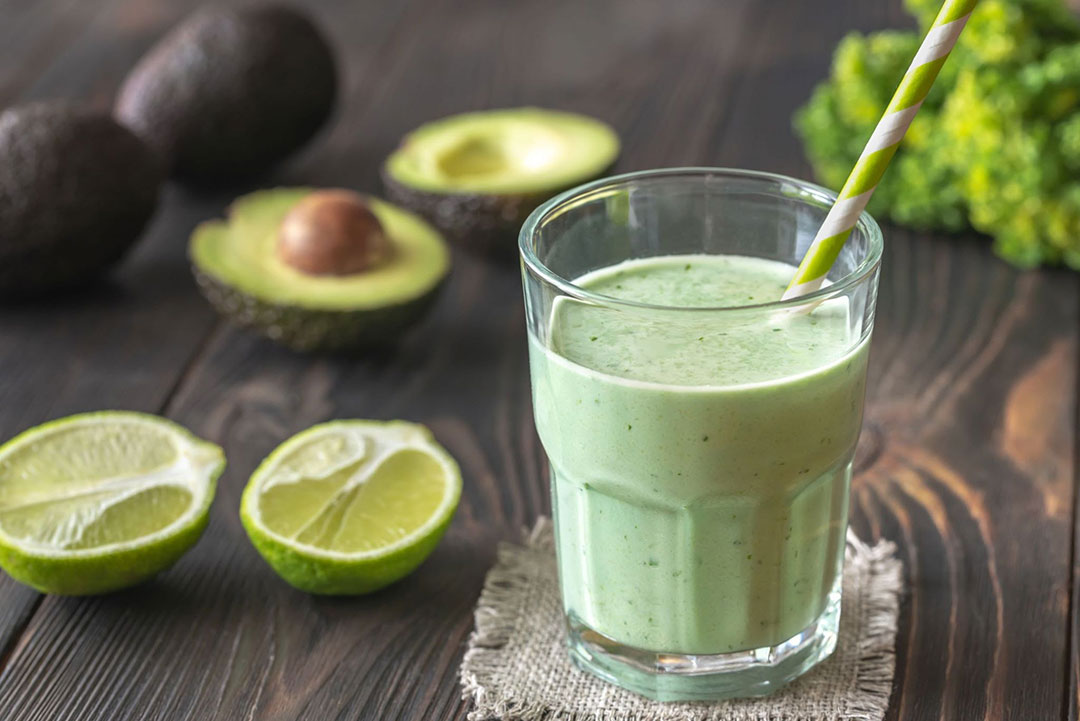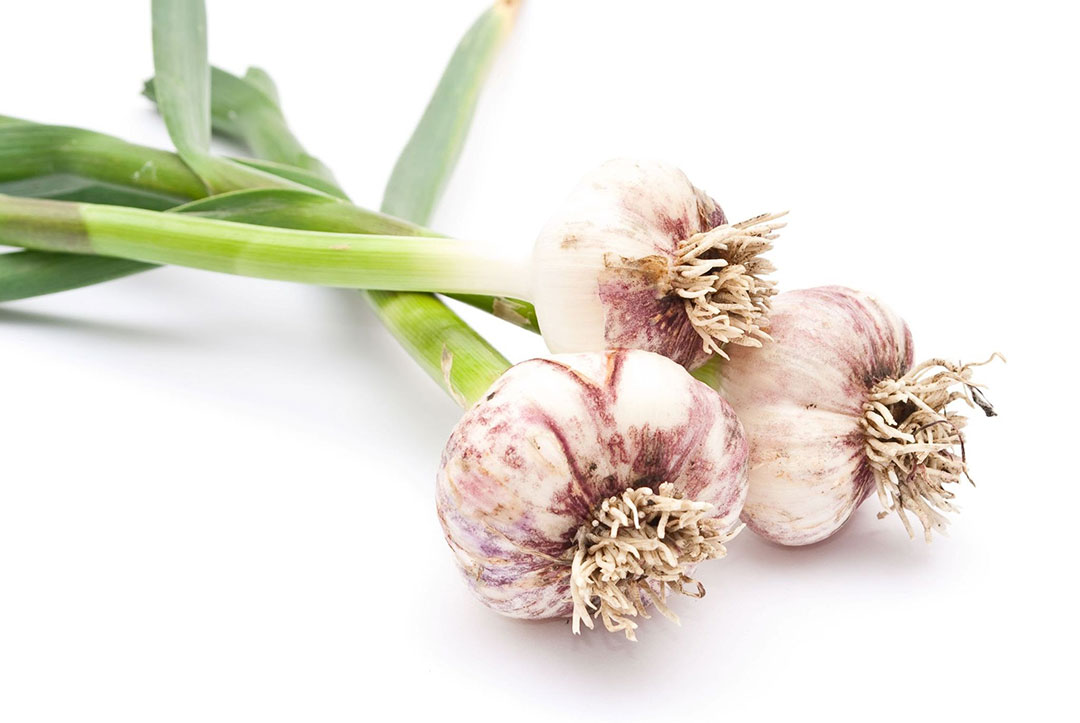There is a lot to think about following the birth of your beautiful child. One of the most common questions a lot of new mamas have is “Should I breastfeed my baby, or should I use formula?” If you’ve chosen to breastfeed, you probably have a few questions. Here is a helpful lactation guide for your breastfeeding newborn with helpful breastfeeding tips.
The Benefits of Breastfeeding for Baby and Mother
First, I want to commend you for choosing to breastfeed. It’s a beautiful and intimate process for both mother and child. It’s one of the best ways to bond with the new life you’ve brought into the world and to ensure your baby has a healthy start to their new life. There is a lot to consider though, and many factors that play into breastfeeding beyond simply whether you want to breastfeed your baby!
Whether you’ve decided to breastfeed exclusively, are choosing to also use formula or need to augment with formula because of low milk supply— know that any decision you make is absolutely okay! It’s your choice.
Any amount of breast milk is beneficial for your breastfed baby, and by eating the right foods and avoiding other not so healthy foods, you are providing the best possible nourishment for your baby to grow up healthy and strong.
One of the best things we as mothers can do not only for our health as well as our newborn baby’s health is to live a healthy, plant-based lifestyle. By living a plant-based lifestyle, we can take the first steps we need to help the beginning of our baby’s life be as easeful and healthful as possible.
Why is Breastfeeding Important?
Breast milk is the best way to give your baby the nutrition they need to grow, and what can be better than the milk Mama creates just for them? For the first six months of your baby’s life, The World Health Organization (WHO) recommends what’s called exclusive breastfeeding. This means that, with the exception of some medicines or vitamins, an infant should only receive breast milk during their first six months and nothing else. 1
Breastfeeding Benefits for Baby
For some mother’s it may be difficult to breastfeed exclusively for the entire six month period. This is why we’re sharing breastfeeding tips to help you achieve this milestone if you choose.
There are actually three different types of breast milk, and each is important for your baby’s health and development. They are naturally produced at different points of your baby’s life:
- Colostrum: Produced in the first few days following birth. Colostrum is high in white cells and antibodies for baby’s immune system
- Transitional Milk: Produced between the first two weeks. Transitional milk is produced as the mother’s body switches from producing colostrum to mature milk.
- Mature Milk: Breast milk produced from the second week onward. This is what your baby will primarily be eating while you feed them.
Breast milk has all the nutrients your baby needs in the first six months of life, including fat, water, protein, carbohydrates, vitamins and minerals. Breast milk also contains anti-infective factors that can protect your child from illness and infection. 2
Breastfeeding Benefits for Mother
There are some amazing benefits for the breastfeeding mother too! Breastfeeding is a beautiful time for you to bond with your baby through skin-to-skin contact, eye contact, and physical touching. This produces hormones like oxytocin and prolactin, which can stimulate milk production, and increase the love and affection between you and your new bundle of joy.
Breastfeeding also burns extra calories, which is great if you’re worried at all about post-pregnancy weight loss (please don’t though for a long while! Your body has just done some amazing things and produced a baby!). 3
Breastfeeding Tips and Common Questions About Breastfeeding
A breastfeeding mama probably has a lot of questions to ask, especially if she’s just had her first child! Here are some answers to common questions about breastfeeding and lactation to help your breastfeeding journey start on a positive note.
Do I Need to Pump Breast Milk? How Often?
Many mothers wonder if it’s necessary to use a breast pump as it isn’t always convenient or comfortable! Pumping breast milk can help stimulate milk production and supplement future feeding sessions, especially if they’re having a hard time latching onto your breast.
Although it’s not absolutely necessary to use a breast pump, it can be helpful to keep a healthy milk supply when you have to augment with formula and it can definitely make things easier if you’re not always available during feeding time.
This is especially true if you’re a working mama. Pumping milk throughout the day can help you ensure your body can keep up with your baby’s feeding demands, as well as keep your breasts from becoming uncomfortably full if you’re not able to nurse immediately. Your place of employment should be able to provide you a lactation room or a private, quiet place to pump in.
Is My Baby Properly Latched?
Making sure your baby is properly latched is vital to breastfeeding. If Baby isn’t latched, they won’t get the milk they need, and you don’t get the stimulation you need to produce your milk. Poor latching can also lead to nipple pain.
A good latch means that your baby’s mouth has covered not only your nipple but your areola as well. Before they begin to suckle, your baby needs to latch around your nipple and onto your areola to start the flow of milk.
Getting into the right position is vital for a good latch and proper feeding. First, you want to make sure you’re comfortable, with your baby close to you.
- Make sure your baby’s nose and mouth are facing your nipple, and that your baby’s chin is touching but not pressing on your breast.
- Support your baby’s back while they latch, rather than the back of their head.
How Do I Relieve Painful or Sore Nipples?
Even if baby latches properly, sore nipples are unfortunately a guarantee for breastfeeding mamas. New mothers especially have to deal with sensitive or cracked nipples, but this thankfully is a temporary problem that goes away after you’ve gotten more used to nursing. 4
You can soothe breast or nipple pain with warm or cool compresses before or after you nurse. Changing up your nursing positions can also help ease or prevent pain while you breastfeed.
Is it Okay to Breastfeed in Public?
A million times yes! Despite some controversy around it, it is perfectly okay to breastfeed your baby while you’re out and about. If you prefer to go someplace private or use a cover of some kind, that’s alright— I used a swaddle to cover myself while I breastfed my kids in public. One thing’s for sure though: You should not feel ashamed or embarrassed to feed your baby in public! If someone has a problem with something that is natural, it is on them!
Is My Baby Getting Enough Milk?
After making sure Baby’s latch is good, we always want to be sure they get enough to eat! It’s hard to tell how much milk your baby is getting as you’re feeding, but there are ways to tell after they’re done.
- Do you know your baby’s feeding cues? Is your baby nursing often? They need to be fed 8-12 times in a 24-hour period.
- Is your baby gaining weight? Your baby’s weight should go up between 5 and 8.5 ounces a week until they’re four months old.
- Is your baby gulping down lots of milk, and relaxed or content after feeding? A “milk-drunk” baby is a sign of a great feed. :)
- Are your baby’s stools turning a yellow color, with a loose, seedy texture? Do they poop 3 or 4 times a day? Checking Baby’s bowel movement after meals is a great way to ensure they’re getting plenty to eat.
If you’re worried that your baby isn’t getting enough to eat, there are signs to watch out for here too.
- Is your baby’s energy low? A baby that’s not feeding well will seem very sleepy a lot of the time.
- Is your baby’s latch painful or weak? Improper latching is not only painful for Mama, but it can prevent Baby from getting enough to eat.
- If your baby’s weight gain is too slow, they may not be getting enough milk.
- If your baby doesn’t poop often, they probably aren’t getting enough to eat. Remember, 3 to 4 bowel movements a day, plus several wet diapers, are a sign of proper feeding.
What Do I Do If I’m Not Producing Enough Breast Milk?
For many mothers, especially first time mothers, it can just take a little time to reliably produce the breast milk your baby needs. With a little patience though, feeding your baby will get much easier. Usually if your baby is eating often enough and latching properly, it’s enough to help you produce the milk they need.
However, if you’re experiencing breastfeeding problems there are steps you can take to aid your lactation and increase your milk supply.
Foods That Help with Lactation
The foods we eat are an important cornerstone to our health, and it’s so important for breastfeeding mothers to be picky about the quality of their nutrition.
Starting your newborn on the breast right away— and avoiding the binky!— is the best way to stimulate milk production, and the right foods can help you ensure that you’re producing high-quality milk for your baby.
The right foods can really help you become a breast milk queen, and even set your baby up for a lifetime of healthy eating! A study published by the American Journal of Clinical Nutrition found that mothers who ate a healthy, vegetable-rich diet while breastfeeding had babies who grew up enjoying the taste of healthy foods. 5 That will come as a big help as they get older when celery and kale compete with cookies and crackers!
Here are some foods that I personally relied on when I was feeding my babies. Remember to stay hydrated too!
- Coconut milk
- Oatmeal
- Leafy Greens
- Healthy fats, such as avocado or chia seeds
- Galactagogues, such as cumin, fenugreek, and fennel
Looking for healthy, delicious recipes that can boost your lactation? Check these out!
- Ayurvedic Breastmilk Coconut-Dill Mushroom Recipe
- Glowing Green Smoothie (GGS)
- Ginger Miso Golden Beet & Fennel Salad Recipe
Foods to Avoid While Breastfeeding
Not all foods are nourishing to mother and baby. A lot of foods are high in dioxins, which can have adverse effects on our mammary glands and milk production. Dioxins are most present in meat, shellfish, and dairy products. 6 These toxins are thankfully reduced in a healthy plant-based diet, but even on the right diet, there are still foods breastfeeding mamas should avoid.
Here’s what not to eat while breastfeeding:
- Caffeine
- Processed Foods
- Certain herbs, including sage, parsley, peppermint and oregano
- Garlic
- Dairy Products
Avoiding toxins in our diets, body care or household products are important because some toxins have been shown to get passed on to our babies through our breast milk without us even realizing it. 7
It can feel overwhelming at times, but don’t worry! A healthy lifestyle and proper nutrition can really make a huge difference in making sure that your baby gets everything they need from mother’s milk.
Where Can I Get Help with Breastfeeding?
Even with the proper nutrition, you may still need help getting your little one to feed or to facilitate successful breastfeeding. Your doctor, your baby’s pediatrician, or your midwife can help, but you may also want to seek assistance from someone with a wider knowledge of breastfeeding and lactation.
A lactation consultant or lactation specialist can help with numerous problems, ranging from sore nipples and breast engorgement to increasing low milk supply or helping Baby latch.
If you’re seeking lactation support, be sure that your consultant is accredited and has IBCLC, or International Board of Certified Lactation Consultants, following their name. 8
For additional support during your breastfeeding journey, La Leche League International (LLLI) is a great resource. LLLI offers online and in-person support groups for all mothers, including mamas who need help inducing lactation, mamas of multiple babies, and special needs breastfeeding support. 9
Beauties, there’s no shame in seeking help if you need it. Lactation services can be very helpful to nursing moms who are struggling to feed their babies, and a little help can make a big difference.
What If I Still Have Trouble Breastfeeding My Baby?
Many new mothers want to breastfeed their babies but struggle to produce enough milk. There are numerous reasons for low milk supply that have nothing to do with your diet. If you feel you have less milk coming in or are worried you’re not producing enough milk here are a few things to consider:
- Hormonal birth control such as the pill, injections or patch can cause a drop in milk production.
If you notice a drop in milk production after beginning birth control again consult with your doctor about it and consider trying a new method. - If you’ve recently stopped night feedings to help regain some much needed rest, you may be inadvertently reducing your milk supply. 10 One reason this may happen is because your hormone prolactin that signals your breasts to produce milk is naturally higher during the night. When you remove night feedings you’re unintentionally lowering your body’s overall prolactin levels which can contribute to a reduction in milk production.
- Are you supplementing with formula with your newborn? During the first few weeks of breastfeeding, supplementing with formula can signal to your body that it needs to produce less milk.
Your body determines how much milk it will produce and is needed by “assessing” how much milk is removed. When you supplement, you’re indicating to your body that you need to produce less milk. If you need to supplement, you may want to pump in addition to breastfeeding to keep your volume of milk production higher. - Have you taken any Pseudoephedrine?
Pseudoephedrine is the active ingredient in cold medicines such as Sudafed, as well as allergy medications and it can reduce breast milk supply.
I typically prefer and recommend natural remedies over drug interventions for a cold or allergies, but if you choose an OTC option try to avoid options with Pseudoephedrine as the active ingredient. This is especially true in the first few weeks of breastfeeding to avoid decreasing your breast milk production. - Herbs and spices such as peppermint, oregano, sage, thyme and parsley are thought to decrease milk flow.
I’ve mentioned galactogogues such as fenugreek are among my favorite foods for breast milk production, but not all herbs and spices are beneficial for stimulating milk production. Some even hinder it, but fortunately it would require large amounts to have an impact. - If you struggle with fertility issues such as PCOS you may have less functional breast tissue which can impact your ability to produce breast milk.
- You may have hypoplasia or insufficient glandular tissue (IGT)
Hypoplasia is a rare condition that affects only 3-4% of women and causes low or in some cases no milk production.If you have this biological condition, it means you have insufficient glandular tissue in your breasts. Hypoplastic breasts are considered underdeveloped breasts which may contain very little breast tissue that can produce breast milk.If it’s determined this is the cause of your low milk supply there may be very little you can do to improve your supply. I encourage you to continue breastfeeding, even if you need to augment your milk with formula.Any amount of breast milk is beneficial, and the benefits of breastfeeding go beyond the benefit of the milk itself. Breastfeeding helps provide comfort, security and creates a special bond between you and baby.
Once you’ve considered these breastfeeding tips or eliminated any of the potential issues above the next best thing to do is increase the number of times you breastfeed. Remember, your baby needs to nurse between eight and 12 times a day (24-hour period) during their first year. If you want to produce more milk, you’ll need to increase the number of times you breastfeed.
Sometimes, despite the right support and your best efforts, you may still struggle to breastfeed and must rely on formula to nourish your child. And that’s okay. The important thing isn’t how you feed your baby— it’s that you are feeding and nourishing them in the best way you can.
There are a lot of expectations for new mothers to be the “perfect parent.” That’s a lot to put on a new mother, whether you’re celebrating the birth of your first child, second or third. In our perfectly imperfect lives, perfection just isn’t always attainable, and all we can do is our best. Do what feels good for you and your baby.
Above all, remember that feelings of guilt, shame or anxiety if breastfeeding doesn’t come as easily to you as it does other women isn’t helpful and can even be harmful.
Everyone’s body and experience is different. Don’t be afraid to talk about it or ask for help. There are many lactation specialists, doctors or healthy supplements that can help you become a breast milk queen in no time!
Remember, your beautiful child that you’ve brought into the world is a gift, one that came to you in health and harmony. You are whole and unique, and you are enough.
Courses for Your Postpartum Journey
Congratulations on the birth of your beautiful child! Whether this is your first child, your second, or maybe even your third, there’s always a bit of an adjustment period as you shift from pregnancy to the postpartum period.
With your new baby in the world, you may have a lot of questions about how to make their lives as happy and healthy as possible. But don’t worry, mama. You got this. :)
Whether you are a brand-new mom, already a mom, or want to become one, I want to invite you to my upcoming pregnancy courses. There’s a lot of information out there about breastfeeding and postpartum care, and it can be hard to tell what’s right for you and your baby.
That’s why I’m creating these three courses— one for each part of your journey to motherhood. These courses will cover fertility and healthy conception, your pregnancy, and finally the postpartum and breastfeeding period.
If you have any questions about your journey to motherhood, big or small, please join us. I’ll let you know when the courses are ready for you.
Citations
- “Exclusive Breastfeeding for Optimal Growth, Development and Health of Infants.” World Health Organization, World Health Organization, 11 Feb. 2019, www.who.int/elena/titles/exclusive_breastfeeding/en/.
- “The Physiological Basis of Breastfeeding.” Infant and Young Child Feeding: Model Chapter for Textbooks for Medical Students and Allied Health Professionals., U.S. National Library of Medicine, 1 Jan. 1970, www.ncbi.nlm.nih.gov/books/NBK148970/.
- Bhargava, Hansa D. “The Benefits of Breastfeeding for Both Mother and Baby.” WebMD, WebMD, 14 Sept. 2020, www.webmd.com/parenting/baby/nursing-basics#2-4.
- Levine, Hallie. “How to Treat Sore Nipples and Breastfeeding Pain.” What to Expect, 10 Aug. 2020, www.whattoexpect.com/first-year/breastfeeding/sore-cracked-painful-nipples-breastfeeding/.
- Mennella, Julie A, et al. “Learning to like Vegetables during Breastfeeding: a Randomized Clinical Trial of Lactating Mothers and Infants.” The American Journal of Clinical Nutrition, American Society for Nutrition, July 2017, www.ncbi.nlm.nih.gov/pmc/articles/pmc5486194/.
- Harrington, Rory. “Dioxins in Food Chain Linked to Breastfeeding Problems.” Organic Consumers Association, 10 June 2009, www.organicconsumers.org/news/dioxins-food-chain-linked-breastfeeding-problems.
- “Breastfeeding May Expose Infants to Toxic Chemicals.” News, 22 June 2018, www.hsph.harvard.edu/news/press-releases/breastfeeding-may-expose-infants-to-toxic-chemicals/.
- AG, Medela. “How to Get Breastfeeding Support.” Medela, 26 Feb. 2021, www.medela.com/breastfeeding/mums-journey/lactation-consultant.
- “La Leche League Online Support Resources.” La Leche League International, 17 Mar. 2021, www.llli.org/la-leche-league-online-support-resources/.
- Aljazaf, Khalidah, et al. “Pseudoephedrine: Effects on Milk Production in Women and Estimation of Infant Exposure via Breastmilk.” British Journal of Clinical Pharmacology, Blackwell Science Inc, July 2003, www.ncbi.nlm.nih.gov/pmc/articles/PMC1884328/.







0 Comments